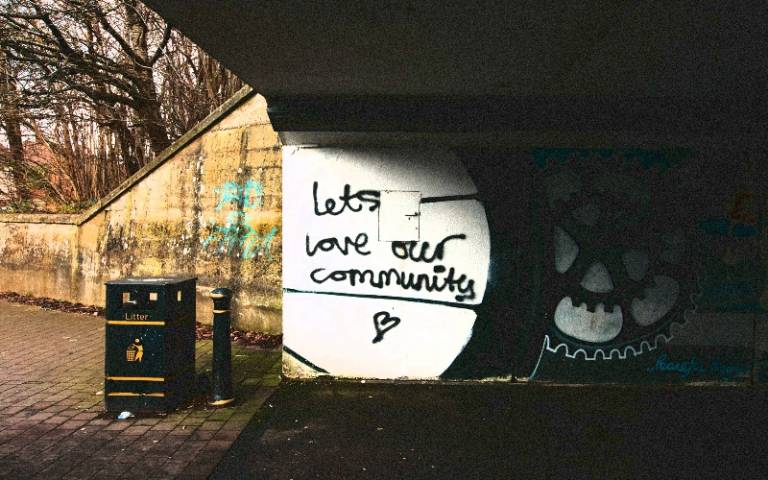Community organisations will lead the post-COVID recovery
4 June 2020
Dr Christopher Harker reflects on how BAME community organisation Money A + E in East London are leading the way in charting alternative post-covid futures

Dr Christopher Harker
“Community work is never easy, but it is worth it” said one member of the Money Advice and Education (Money A+E) steering group at their meeting on Wednesday 6th May 2020. I can see other Zoom participants nodding their heads. After the meeting, I remember this sentence vividly, because it points to the work that is needed to reshape societies across the world. This work will not be easy, but it will be worth it. It will not just be about responding to pandemic diseases, but other ‘diseases’ like inequality, mass displacement, democratic deficits and climate crisis. And there is much we can, and must learn from community groups who are the real experts in supporting people as they seek to build better lives.
Money A+E is one such group. They are based in the London borough of Newham, where Covid 19 death rates have been higher than anywhere else in Britain’s capital. Throughout the crisis, they have not only continued to provide money advice and training to BAME (Black, Asian and Minority Ethnic) and disadvantaged communities, but also expanded their work to directly support those most in need. Given the ways in which Covid 19 has disproportionately killed black people in particular, their staff have intimate knowledge of the devastating impact this virus is having on some of Britain’s most disadvantaged communities. An independent public inquiry into deaths from Covid-19 among people from ethnic minority backgrounds will illuminate the context in which Money A+E operates. It doesn’t require much foresight to see that the predicted deepest recession on record will impact the communities Money A+E works in and with most heavily.
And yet, despite this gloomy picture, the mood at the steering group was not sober. Members made reference to the loss of loved ones, the anxiety created by financial difficulties and the shock at how vulnerable some people were, particularly migrant communities. But they also talked about the value of love and care, the excitement at seeing younger generations supporting older ones, and the hope that people were becoming more mindful and less individualistic. Many described these things as more important than money. And in doing so, they highlight how community groups already understand that inclusive prosperity is about more than monetary wealth. It is precisely this expertise that we need to support and expand if we are to achieve genuine societal transformation. Money A+E teaches us that the present situation might be difficult, but communities already possess crucial resources, such as care, solidarity and kindness. On their own these are not enough. But when supported by a financial system that recognises their importance, these practices will help people live genuinely valued lives in societies where flourishing is inclusive.
The IGP has been working with Money A+E for over a year now to understand the impact their community-based approach to money and finance has on creating inclusive prosperity for some of London’s most marginalised communities. Money A+E ‘s work offers one among many solutions to the question of how we finance the lives we want.
Many other alternatives were brought together as part of the Financing Prosperity Network e-conference in 2018 and we have compiled short summary videos of these ideas at SeriouslyDifferent.org
Image credit: Mike Erskine, Unsplash (edited)
 Close
Close

